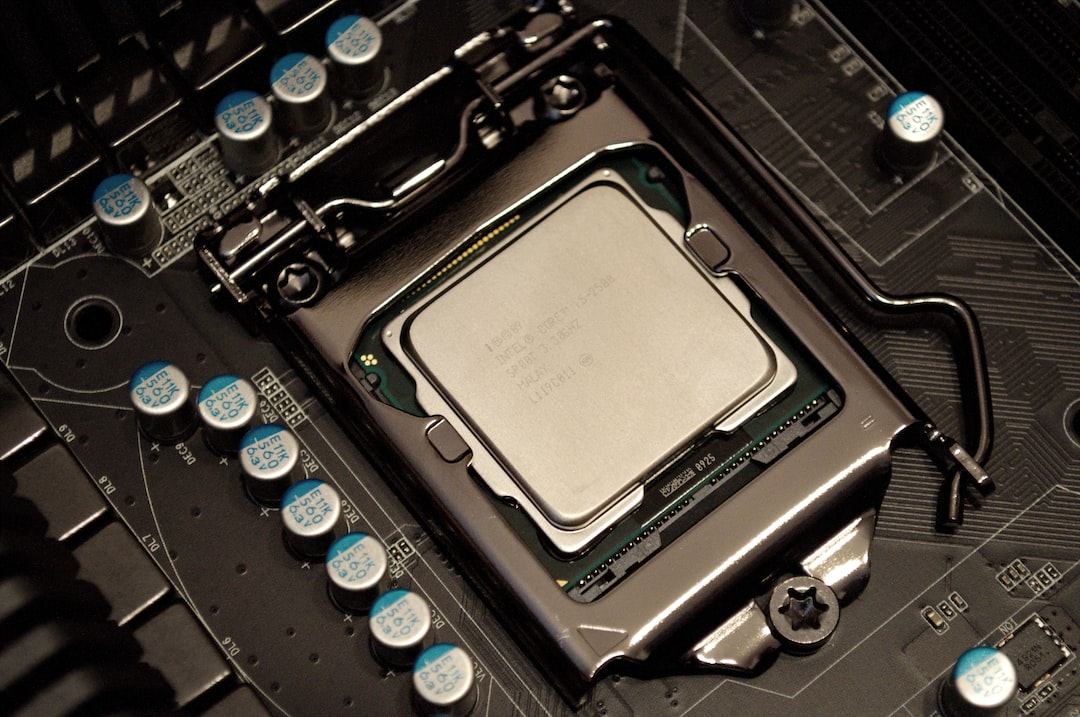The Role of Artificial Intelligence in Healthcare
Over the past few decades, technological advancements have revolutionized various industries, and the healthcare sector is no exception. One of the most prominent advancements in recent years is the integration of artificial intelligence (AI) into healthcare systems. AI has transformed the way healthcare professionals diagnose, treat, and manage diseases, improving patient outcomes and enhancing overall efficiency. In this blog post, we will explore the role of artificial intelligence in healthcare and its significant impacts on the industry.
1. Diagnosis and Early Detection
The accurate and timely diagnosis of diseases is crucial for effective treatment. AI algorithms are trained on vast amounts of medical data, including symptoms, medical images, and patient records, enabling them to identify patterns and make highly accurate diagnoses. This not only saves time but also reduces human errors that can occur due to fatigue or misinterpretation.
Furthermore, AI-powered systems are capable of detecting diseases at an early stage when symptoms might not be apparent to clinicians. For example, machine learning algorithms have been successfully used to detect early signs of cancer by analyzing mammography images. This early detection allows for prompt interventions and potentially higher chances of successful treatment.
2. Personalized Medicine
Each patient has unique characteristics and varying responses to treatments. AI plays a vital role in tailoring treatment plans to suit individual patients. By analyzing vast amounts of patient data, including medical history, genetic information, and lifestyle factors, AI algorithms can generate personalized treatment plans that consider the patient’s specific needs and potential reactions to medications.
Personalized medicine not only enhances patient outcomes but also minimizes adverse reactions and unnecessary procedures. Treatment plans can be continuously adjusted based on real-time data feedback, ensuring the most effective and efficient course of action.
3. Remote Monitoring
AI-powered monitoring systems have significantly improved the management of chronic diseases and post-operative care. These systems can track patients’ vital signs, such as heart rate, blood pressure, and oxygen levels, in real-time. The data is then analyzed by AI algorithms to detect any abnormalities or potential health risks.
By continuously monitoring patients remotely, healthcare providers can identify early warning signs and intervene promptly, potentially preventing complications and hospital readmissions. This technology is particularly beneficial for elderly patients or those with limited access to healthcare facilities, ensuring their well-being and reducing the burden on healthcare resources.
4. Streamlining Administrative Tasks
AI has not only transformed patient care but also made a significant impact on administrative tasks within healthcare systems. AI-powered chatbots and virtual assistants are increasingly being used to streamline administrative processes, such as appointment scheduling, billing, and patient queries.
These AI-driven systems can respond to routine inquiries, provide information, and guide patients through various administrative procedures, freeing up administrative staff to focus on more complex tasks. This not only saves time but also enhances patient satisfaction by providing round-the-clock service and reducing wait times.
5. Drug Discovery and Research
The development of new drugs and therapies typically requires extensive research and testing, which can be time-consuming and expensive. AI algorithms have the potential to accelerate the drug discovery process by analyzing vast amounts of biomedical research data, identifying potential drug targets, and predicting their effectiveness.
AI also enables researchers to identify previously overlooked connections between different diseases, genes, and environmental factors. This holistic approach to research opens up new possibilities for disease prevention, early detection, and targeted treatments.
Conclusion
Artificial intelligence has become an essential part of modern healthcare systems, revolutionizing the way healthcare is delivered and managed. From accurate diagnosis and personalized medicine to remote monitoring and streamlined administrative tasks, AI has significantly improved patient outcomes and enhanced overall efficiency. As technology continues to advance, the role of AI in healthcare is expected to grow even further, unlocking countless possibilities for a healthier future.

